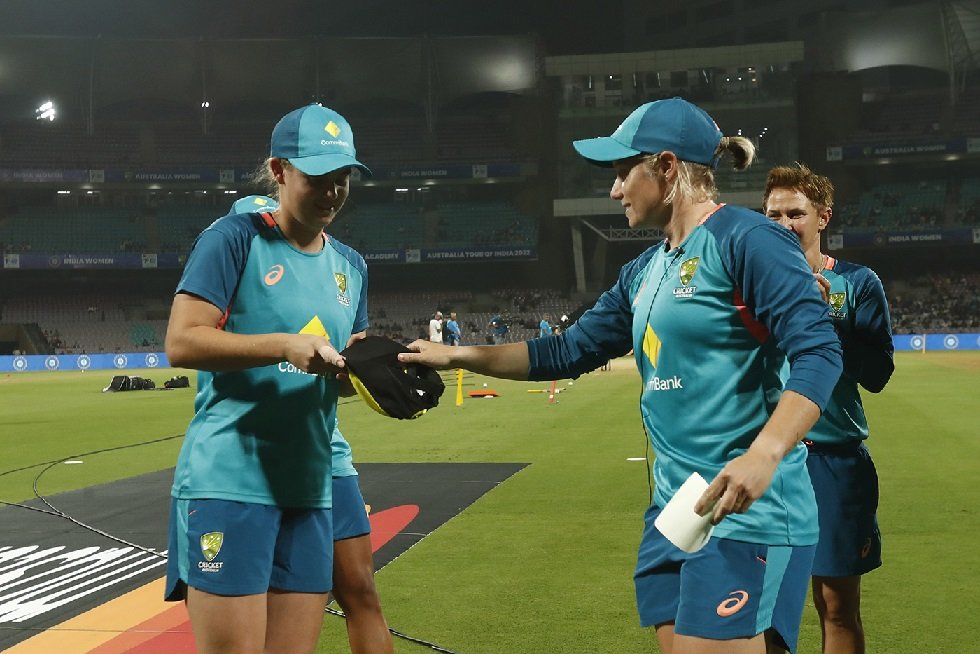Cricket is not merely a test of physical prowess but equally a challenge of mental fortitude. The pressure of the sport, especially in high-stakes matches, demands that players maintain a sharp and resilient mindset. A cricketer’s mental game involves focusing on strategy, maintaining composure, and making split-second decisions that can make or break a match.
Interestingly, the same mental discipline and pressure-handling techniques used in professional cricket also apply to competitive environments like casino gaming and high-stakes betting—insights from platforms like this website illustrate how psychological composure can influence decision-making and outcomes under pressure.
The psychological aspect of cricket can be as grueling as the physical demands. Players must constantly navigate intense scrutiny, both from their own expectations and from fans. Mental stamina is crucial for enduring this scrutiny and excelling under pressure. The ability to keep one’s nerve during critical moments often distinguishes a good player from a great one.
The Importance of Mental Resilience in High-Stakes Matches
Mental resilience is the backbone of any successful cricketer. In high-stakes matches, the pressure to perform can be overwhelming. Players must cultivate resilience to bounce back from setbacks, such as missed opportunities or unfavorable decisions, and remain focused on the overall goal.
Resilience enables cricketers to maintain their composure and continue executing their skills under duress. It involves a balance of confidence, determination, and the ability to stay calm in tense situations. This mental toughness ensures that players can handle the ebb and flow of a match without losing sight of their objectives.
Moreover, mental resilience helps players manage the stress associated with high expectations. Whether it’s the pressure from the team, media, or self-imposed demands, resilient cricketers learn to channel these pressures into motivation. They understand that setbacks are a natural part of the game and use them as learning experiences to improve future performances.
Common Psychological Challenges Faced by Cricketers
Cricketers face a myriad of psychological challenges that can impact their performance on the field. These challenges can range from performance anxiety to fear of failure, both of which can undermine a player’s confidence and focus.
Performance anxiety is a common issue that arises when players feel overwhelmed by the pressure to perform well. This anxiety can manifest as nervousness, increased heart rate, and difficulty concentrating, all of which can detract from performance. Learning to manage this anxiety is crucial for maintaining focus and executing skills effectively.
Fear of failure is another significant challenge. Cricketers often worry about disappointing their team, coaches, or fans, which can lead to risk-averse behavior and hesitation. Overcoming this fear involves embracing failure as a part of the learning process and maintaining a growth mindset.
Additionally, the mental fatigue from continuous travel, rigorous training, and demanding schedules can take a toll on a player’s mental health. This fatigue can lead to burnout, making it important for players to balance their mental and physical workloads to maintain overall well-being.
Strategies for Maintaining Focus Under Pressure
Maintaining focus under pressure is a skill that can be developed with practice and discipline. One effective strategy is setting clear, achievable goals that provide direction and motivation. By focusing on specific objectives, players can channel their energy into productive actions rather than becoming overwhelmed by the situation.
Another strategy involves developing a routine that includes relaxation techniques such as deep breathing, meditation, or progressive muscle relaxation. These techniques can help calm the mind, reduce stress, and enhance concentration. Regular practice of these techniques can make them more effective when employed during high-pressure situations.
Cricketers can also benefit from self-talk, a powerful tool for maintaining focus. Positive self-talk involves reinforcing one’s confidence and abilities, which can help counteract negative thoughts and distractions. By cultivating a positive inner dialogue, players can stay centered and focused on their tasks.
Techniques for Building Confidence Before a Match
Confidence is a critical component of a cricketer’s mental game. It influences decision-making, performance, and the ability to handle pressure. Building confidence before a match involves preparation, visualization, and a positive mindset.
Thorough preparation is key to building confidence. This includes studying opponents, understanding the playing conditions, and refining skills through practice. The more prepared a player feels, the more confident they are likely to be in their abilities to perform.
Visualization is another powerful technique for boosting confidence. By mentally rehearsing successful performances and envisioning positive outcomes, players can build a sense of assurance in their capabilities. This mental rehearsal helps create a blueprint for success that can be drawn upon during the match.
A positive mindset is essential for confidence. Players should focus on their strengths and past successes, using them as reminders of their capabilities. By fostering a growth mindset, they can view challenges as opportunities for improvement rather than threats to their confidence.
The Role of Visualization in Performance Enhancement
Visualization is a mental technique that can significantly enhance performance in cricket. By creating vivid mental images of successful plays, cricketers can improve their focus, confidence, and overall performance.
This technique involves mentally simulating various scenarios, such as hitting a six or delivering a perfect ball. Visualization helps players rehearse their skills and strategies, ingraining them in their minds. This mental practice complements physical training, as the brain cannot distinguish between real and imagined experiences.
Conclusion
Mastering the mental game in cricket is a vital aspect of achieving success in high-stakes matches. By understanding the psychological challenges and employing effective strategies, cricketers can enhance their focus, confidence, and resilience.
Embracing the mental challenge involves continuous growth and development. Players must remain open to learning and adapting their mental techniques to suit their needs. By prioritizing mental resilience and employing strategies like visualization, mindfulness, and positive self-talk, cricketers can excel under pressure and achieve their goals.




